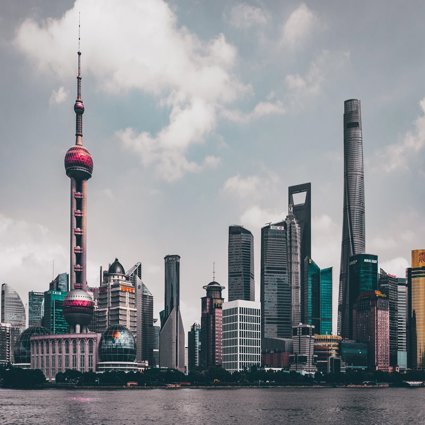
Sustainable China
‘Sustainable China' is a lesson where students discover the impact of growth and development on the national and global environment. It is about sustainable development
Key questions
What impact is development having on the environment in China?
What is the global environmental impact of rapid Chinese development?
The main consequences of China's rapid industrial development are increased pollution and degradation of natural resources. Problems such as soil erosion, desertification and the steady fall of the water table, especially in the north, pose a threat to the sustainable development of the country.
China has overtaken the United States as the world's biggest producer of carbon dioxide, the chief greenhouse gas. China produced 6,200m tonnes of CO2 in 2007, compared with 5,800m tonnes from the US. Britain produced about 600m tonnes. However per head of population, China's pollution remains relatively low - about a quarter of that in the US and half that of the UK. China's energy consumption is 11.3 % of the world total.
China relies on coal for two thirds of its energy needs creating air pollution - it burns more of it than the United States, Europe and Japan combined. Expanding car ownership, heavy traffic and low-grade gasoline have made cars the leading source of air pollution in major Chinese cities. Seven of the world's 10 most polluted cities are in China. Only one per cent of the country's 560 million city dwellers breathe air considered safe by the European Union. Respiratory and heart diseases related to air pollution are the leading causes of death in China. 75,000 deaths a year are attributed to air pollution. China's problem has become the world's problem. Sulfur dioxide and nitrogen oxides spewed by China's coal-fired power plants fall as acid rain on Seoul, South Korea, and Tokyo. Much of the particulate pollution over Los Angeles originates in China, according to the Journal of Geophysical Research.
Almost all of the nation's rivers are considered polluted to some degree. 90% of urban water bodies are severely polluted. Acid rain falls on 30% of the country.
The question of environmental impacts associated with the $25bn Three Gorges Dam project has generated controversy among environmentalists inside and outside China. Critics claim that erosion and silting of the Yangtze River threaten several endangered species, while officials say the dam will help prevent devastating floods and generate clean hydroelectric power that will enable the region to lower its dependence on coal, thus lessening air pollution.
China is an active participant in climate change talks and other multilateral environmental negotiations in organization such as the UN Environment Program (UNEP). Beijing has invested heavily in pollution control as part of its preparation of the 2008 Olympic Games. In 2005, China joined the Asia Pacific Partnership on Clean Development, which brings industries and governments together to implement strategies that reduce pollution and address climate change. Some cities have seen improvement in air quality in recent years.
Starter
-
What waste is produced in cities?
-
What happens to waste produced in cities?
-
What waste is produced in the countryside?
-
What happens to waste produced in the countryside?
Main Activity
In groups look at China - pollution and environmental damage and China - a selection of environmental news reports.
What are the types of environmental damage and the range of causes?
What are the health, environmental and economic impacts?
Write a script for a role play.
Identity the roles: these should include a variety of interested parties from officials to urban and rural dwellers. For example:
-
Jilin Petrochemical Company
-
Chinese Government Official
-
Chinese Environmental Activist
-
United Nations Environment Programme
-
Chinese Ministry of Public Health
-
Rural resident
-
City resident
Plenary
Although we know in the rich countries that our cars, our factories, our power stations and our homes produce greenhouse gases that increase the risk of global warming and global climate change, we carry on producing these gases.
Should rich countries such as the UK and the USA set a better example to the newly developing countries such as China?
Write a letter to the UK Minister for the Environment explaining your opinion on this matter.
File nameFiles
File type
Size
Download